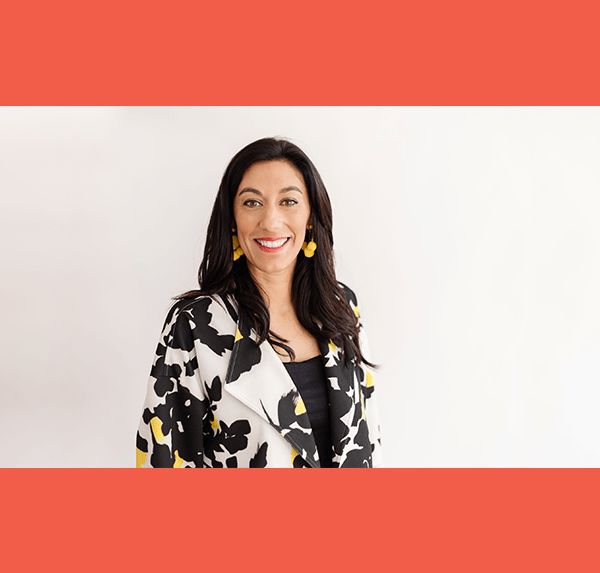Introduction to Mindset Management by Sharron Frammingham
Sharron Frammingham has an impressive resume. In addition to being a Senior Global Sales Recruiter at TransPerfect, she is also the author of the Octagonal Mindset, an evidence-based framework for forming new habits for well-being at work and finding meaning in employment and education. In 2013, she founded 70×7 Ltd., an employment specialist firm that helps people reach their career goals by training them to think differently.
As part of our Crafting Your Future series of talks, she introduced an audience of EU students to the concept of mindset management, explaining how her eight-point strategy would benefit them now, during exam season, as well as in their future careers.


The Octagonal Mindset
The Octagonal Mindset is an eight-point, evidenced-based strategy that we can apply every day. It helps us to develop:
1. Faith to Fail
Courage comes first, then confidence second. But what does courage mean to you? For Sharron, courage is a choice. It’s an attribute we can and have a responsibility to develop and practice daily. In order to do this, we must be faithful to our core desires, always keep our goals front and center, and surround ourselves with people who will help us to grow. We will all make mistakes, but it’s how we respond to them that counts. Courage is picking yourself up and continuing forwards in your chosen direction.
Here are some questions to consider to help you build up your courage:
- What are your courage builders?
- Who do you spend time with? Who’s a positive influence on you?
- How are you feeling?
- What are your good habits? Do you look after yourself? Are you eating well? Are you having fun, resting enough?
- Are you making time?
- What makes you feel brave?
- Where can your courage take you?
2. Original Identity
Developing conviction is a mindset. When it comes to your own identity, remembering you are unique can help you overcome a lot of self-doubt. In certain, high-pressure situations, you might feel like you’re not strong enough, not clever enough, or not experienced enough. But when those feelings hit, you have to remind yourself you’re one of a kind, there is no one else like you, and there are things you can do that no one else can do in the same way. In summary, you are important and you are enough.
It’s not always easy for us to recognize our own strengths, but it might help to think about:
- What do other people affirm you for? What do you affirm them for?
- Where’s your heart? The things you love will often point you towards things you’re really good at.
- What are your top five talents, abilities, gifts, or skills (TAGS)?
- What are your self-limiting beliefs?
3. Respectful Patience
Patience is a lot of things: active, enthusiastic, proactive. It requires preparation, cooperation, persistence, and careful thought. Take a minute to assess where you are and where you want to be. Then ask:
- What can I do today to help me get there?
- What’s the next step I should be taking? What small thing can I do right now to make way for change?
Always have one eye on your goal to make sure you’re continually working towards it. You don’t have to take giant leaps; every tiny step will help you get there!


4. Generous Integrity
Integrity means doing what you say you’ll do. Sharron likens it to a roadmap. It keeps us on track, helps us make decisions, and by following it, we can ensure we’re heading in the right direction. Again, it’s a choice, and we have to take ownership of the choices that we make. Throughout life, we will have disagreements with people – family, friends, colleagues, mentors, etc. – but integrity can help you navigate through the difficulties and find a solution.
Generosity takes this a step further. It’s about taking action for the benefit of others. So, how can you develop your own generous integrity? Consider:
- What damages your integrity?
- How do you put your mistakes right?
- How can you use your TAGS in a generous way?
- How can you be generous with your time?
- How could I give more freely?
5. Innocent Kindness
Kindness, with an Octagonal Mindset, is thought of as a sphere, a three-dimensional thing that is innate and community focused. You have to be kind to everyone you are in contact with, including yourself, just for the sake of being kind. And you have to make it a priority, regardless of time pressures.
To help you practice this kind of genuine, innocent kindness, here are some questions you should ask yourself:
- What helps you to be kind?
- Conversely, what prevents you from being kind?
- How can you be kind today?
- How can you be kind to yourself today?
6. Values Appreciation
It’s really important for you to know what your values are, especially when you are applying for jobs. Understanding your passions, convictions and beliefs, the things that motivate you, the things you need to be happy, is critical. Because if you don’t know what your values are, it’s easy for other people to tell you what they should be, and you need to set the values for your own life.
To determine what these are, think about:
- What is the most important thing for you?
- What do you want to be remembered for?
- What drives and influences your decisions?
- What’s preventing you from achieving your goals?
- Do my decisions line up with my values?


7. Empathetic Unicity
This step is all about learning to choose how you respond to situations. Life can be messy, it doesn’t always go to plan, and in that moment when you realize something’s gone wrong and you’re hit by a flood of emotions (grief, sadness, disappointment), you have a choice to make. Are you going to respond or react? Do you know the difference?
Reactions are automatic. We don’t have to think about them, they just happen. Responses, on the other hand, are conscious choices that we make. It’s important that we allow ourselves time and empathy in order to manage our emotions and try and focus on the positives of our situation.
Here, Sharron encouraged her audience to think about how they handle feedback and criticism. She asked students:
- How do you react?
- How could you respond better next time?
- What helps you show empathy? What prevents you from showing empathy?
- What difference does empathy make?
8. Sustained Commitment
Instead of viewing commitment as a restraint, Sharron wants to flip the script and show people how liberating commitment can be in the right circumstances. Of course, we sometimes commit to things we should never have said yes to. But that’s why this is the last step, so we can use what we’ve learned about our identity, our integrity, and our values, to determine what the right opportunities are for us.
If you’re in, you should be all in, and that’s where the sense of freedom comes from. It’s liberating for us emotionally, mentally, and physically, to have a focus, a challenge, a goal in life. Think about your own situation now, and ask yourself:
- What are you committed to?
- What should you be committed to?
- What prevents you from connecting?
- What can you commit to today?
And use the answers you come up with to drive change and create positive forward momentum.










